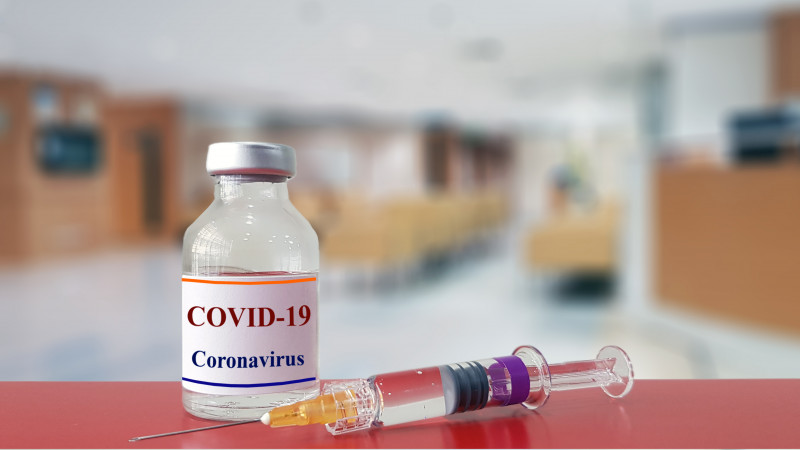Rare Case of MG Crisis Attributed to COVID-19 Vaccine
Written by |

joel bubble ben/Shutterstock
A very rare case of a myasthenia gravis (MG) crisis caused by the Moderna COVID-19 vaccine was described recently by researchers at St. Joseph’s Regional Medical Center in Paterson, New Jersey.
“Although numerous studies have observed the relationship between active COVID infections and MG exacerbations, no known studies or case reports have described an MG exacerbation induced by the COVID-19 vaccine,” the team wrote.
The researchers stressed that the benefits of COVID-19 vaccination far outweigh its risks, but suggested that more rigorous monitoring may be warranted for people with MG who receive COVID-19 vaccines.
The case was described in the study, “A Case of COVID-19 Vaccine Causing a Myasthenia Gravis Crisis,” published in the journal Cureus.
The patient, a 77-year-old white man, had been diagnosed with MG five years prior. His MG was being treated stably with the steroid prednisone and the muscle strengthener pyridostigmine (sold as Mestinon, among other brand names).
The patient received both shots of the Moderna COVID-19 vaccine, given about four weeks apart. About one week after receiving the second injection, he went to the emergency room (ER) complaining of swallowing difficulties (dysphagia).
In the ER, clinicians noted he was breathing abnormally quickly, had an unusually fast heart rate, and his blood oxygen levels were lower than normal. Laboratory tests also found signs of kidney failure, likely because he was having difficulty ingesting food and liquids. Collectively, examinations indicated he was experiencing an MG crisis, or exacerbation.
“Given the history of the COVID-19 vaccine coinciding with the onset of his dysphagia, it is most likely that our patient’s exacerbation was attributed to the vaccination,” the researchers wrote.
He was admitted to the hospital’s neurology unit, where he received further treatment with prednisone and pyridostigmine, as well as intravenous immunoglobulin (IVIG). The patient also was given intravenous hydration — fluids delivered directly into the bloodstream — that improved his kidney function.
Over the next few days, his blood oxygen levels increased, but he was still having trouble swallowing.
On the sixth day in the hospital, he experienced another MG crisis, characterized by lethargy (lack of energy) and flaccidity (lack of muscle tone). Muscle weakness made it difficult for the patient to breathe, causing carbon dioxide levels in his blood to rise.
At that point, he was intubated and transferred to an intensive care unit, where he received more doses of steroids and two more courses of IVIG. His condition eventually stabilized, allowing for successful removal of the breathing tube.
Researchers noted this case may have key implications for MG patients who receive COVID-19 vaccines.
“This rare yet severe presentation that required intubation and mechanical ventilation in our patient raises the question of whether monitoring in a hospital setting is necessary for this subset of patients who get vaccinated,” they wrote.
The team noted that vaccine recipients usually are monitored for only 15–30 minutes after getting a shot, whereas in this case, an MG exacerbation developed several days after vaccination.
“The usual post-vaccination observation time … does not fully capture the adverse effects that may appear one or two weeks after the injection,” they wrote, adding that “in patients like this, the possibility of an MG flare and resultant respiratory muscle [weakness] are life-threatening but avoidable if proper parameters are put in place for observation within the first and second weeks of receiving the vaccine.”
The team called for more research into the best monitoring strategy for people with MG undergoing vaccination.
“In the end, the risk of contracting SARS-CoV-2 infection and its consequences including acute respiratory failure, acute respiratory distress syndrome, lung fibrosis, hypercoagulability, and death outweigh the risk of adverse events from vaccination. Vaccination is still the preferred modality to combat the virus, and understanding the timing and prevalence of adverse events can help formulate the precautions needed to be taken during and after vaccine administration,” they concluded.







Leave a comment
Fill in the required fields to post. Your email address will not be published.